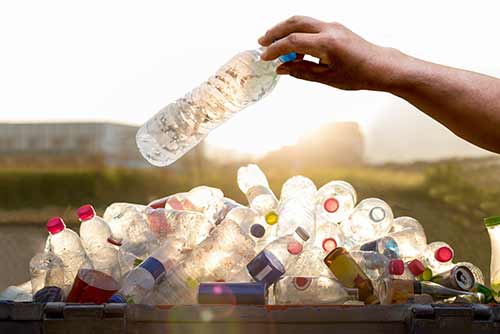Waste of information: How to properly sort your business waste

Knowing how to correctly sort your business waste is an essential part of fulfilling your legal duties in regards to its waste management and disposal processes. As the official government website outlines, you should be keeping your business waste to a minimum by doing everything you reasonably can to prevent, reuse, recycle or recover it. In addition to this, you should store waste safely and securely by using suitable containers, labelling containers to clearly show which waste materials they contain, and using waterproof covers to prevent waste from blowing away or being unable to be reused.
Whether you’re recycling your business waste or sending it to landfill, it’s also essential to ensure that different waste materials are segregated and stored separately. This is something that can be done by hand or with the help of a waste baler. However, the reason that it’s so important to sort your business waste correctly is because it allows it to be reused more easily, and it prevents contamination between different waste materials.
At phs Wastekit, we know just how confusing it can be to correctly segregate and store your business’s waste materials so that they can be recycled, reused or sent to landfill. Fortunately, we’ve put together this quick and handy guide to help you properly sort your business waste…
Which waste materials go in which bin?

From 1st January 2015, it was enforced that all public and private waste collectors must set up separate collections for different waste materials. These guidelines apply to commercial (trade), industrial and household waste, stating that plastic, paper, metal and glass must be collected separately. The guidelines also outline that this is necessary to produce high quality recyclates (raw materials that are processed in a waste recycling plant). This increases the quantity and quality of recyclable waste.
Collecting different waste materials separately is also necessary if its “technically, environmentally or economically practicable to do so.” (source: GOV.UK) To make the task of sorting your waste materials easier, we’ve outlined which items fall into each of these categories below:
Plastic
Recyclable plastic waste includes milk bottles and any other plastic bottles (without lids), yoghurt pots and lids, meat trays, fruit punnets and plastic film.
Paper
Recyclable paper waste includes newspapers, magazines, brochures, books, computer paper (used or unused), envelopes, wrapping paper, shredded paper, and paper banners and posters.
Cardboard
Recyclable cardboard waste includes cardboard boxes (such as food packaging), corrugated cardboard and egg boxes. However, any cardboard that’s been contaminated by oily food can’t be recycled.
Metal
Recyclable metal waste includes food tins, drinks cans, empty aerosols, and aluminium foil and trays.
Glass
Recyclable glass waste includes glass bottles and jars.
General waste
General waste bins are for any waste materials that can’t be recycled, including carrier bags, crisp and sweet wrappers, tissues, napkins and kitchen towels, and polystyrene and polythene. Before you send these items to landfill, consider if they can be reused, instead of simply being disposed of.
It’s important to remember that any hazardous waste is stored separately from the rest of your waste.
Does my business need a waste baler?
One of the biggest advantages of investing in a business waste baler is that it segregates your different waste materials for you. This saves company’s time on completing this task manually, and it also makes it easier to recycle. If your business segregates its waste, you can also earn money from any recyclable materials by selling them to recycling companies. At phs Wastekit, we work with a number of recycling companies across the UK.
To find out more about how phs Wastekit can help your business fulfil its recycling targets and earn revenue from your recyclable waste, request our Wastesaving Audit.